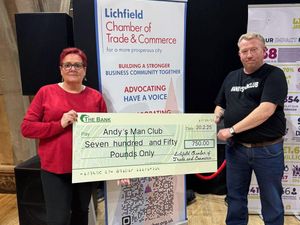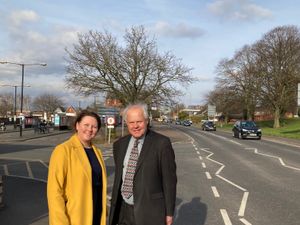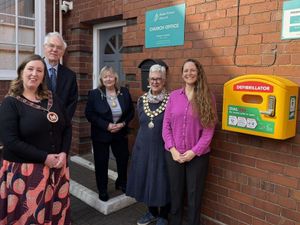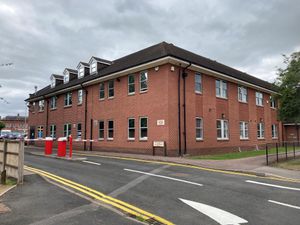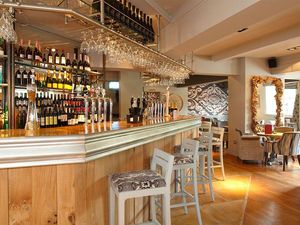Malcolm makes street organs at home in Lichfield
Malcolm Cureton makes street organs in a workshop at the back of his Lichfield house. Watch our video.
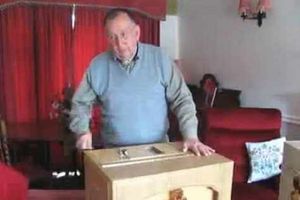
Malcolm Cureton makes street organs in a workshop at the back of his Lichfield house. He talks to Cathy Spencer.
With its melodic, nostalgic tunes, Malcolm Cureton's street organ sounds like it could have cost thousands of pounds.
However, the 72-year-old is happy to reveal that it is actually created from a mixture of kitchen units, MDF, brass plumber's olives and rubber bands for old-style vacuum cleaners.
He spent two years creating the aptly named B&Q organ before building a second one for his wife Jo, also 72.
Now the couple travel the country performing at Victorian festivals and Christmas markets.
"The street organs always draw a big crowd and children are fascinated by them and always want to have a turn of the handle," says Malcolm, who lives in Heritage Court, Lichfield
"It can cost thousands to buy a street organ but for my first one I just used bits and pieces off the shelf at B&Q and it cost me £200."
Malcolm and Jo grew up in Great Barr and knew each other when they were both at Great Barr Comprehensive School.
They started dating when they were 17-years-old and now have two children – Mandy, 46, and Jason, 43, as well as five grandchildren.
"I used to do a woodwork class at school and started out making items such as coffee tables," he says.
"Then Jo and I had The Train Shop, which used to be in Bird Street, Lichfield and I spent quite a bit of time repairing model trains and creating the layouts for the tracks."
After selling the shop around ten years ago Malcolm started making dolls houses but then moved on to street organs.
"We went to Dorset Steam Fair where they have traction engines, vintage cars and funfairs," he says.
"There were dozens of organs there and that was when I decided I wanted to have a go at making one.
"I bought a guide on how to create a street organ and set to work in the garage at the back of our house.
"I also create puppets, which dance along with the vibration created by the organ."
The couple take their street organ to events across the country.
Over the Easter weekend they were at Hatton Garden World entertaining crowds and they have also played their street organs at the Christmas market in Lichfield and the Victorian festival in Llandudno as well as at Blists Hill Victorian Town in Shropshire.
"You always have to make three of everything as the first two always go in the scrap bin," says Malcolm.
"It takes time and patience to make a street organ as there is always something that doesn't work or has gone wrong.
"The second organ is called Florentina, as both our mums were called Florence and that is also Jo's middle name."
Malcolm says he built his first street organ between 2005 and 2007 and he learned it was all about trial and error.
"You build all the pipes first and test them by blowing through them – I tell children it is similar to playing a recorder," he says.
"However, it can't be properly tested until it has all been put together as things like air pressure can change things.
"You can buy the punched paper scrolls that play the music and are designed for 20 pipes – which means 20 notes.
"For my third street organ I'm not using a paper scroll put putting in a midi system which means it is an electronically controlled.
"This is because paper scrolls can cost up to £120 each whereas electronically I can store 150 tunes on one memory card."
Malcolm says as he gets older it can be a struggle to lift the heavy organs and transport them around the country.
"My son often helps me to get the organs into the car but as we get older it does get more difficult," he says.
"Also there are a lot of rules and regulations in place when you are playing at a public event – I have to pay for public liability insurance up to £5 million.
"These regulations can hinder things but we enjoy playing our street organs, and when you see the enjoyment people get from listening to the lovely nostalgic tunes then it is all worth it."

